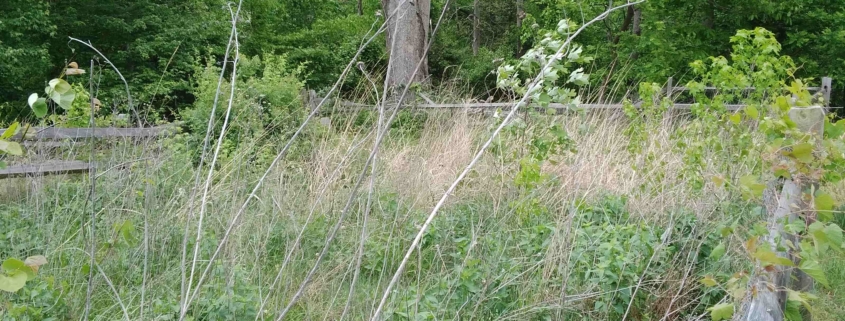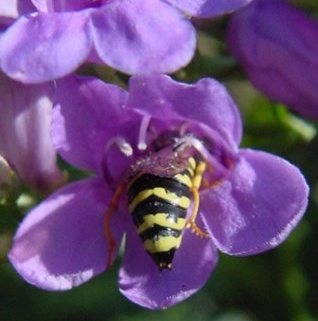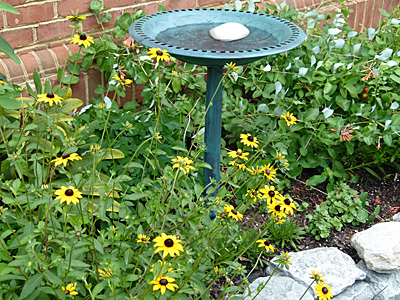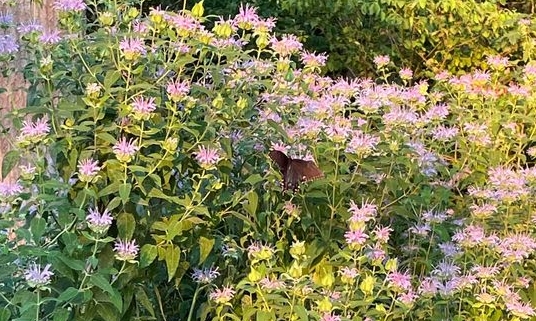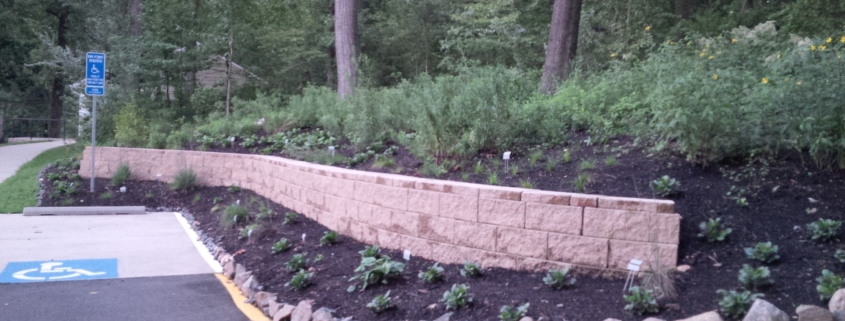Fairfax Master Naturalist Chapter Project Update
Photo credits: Overgrown Woodland Edge Garden picture by Paul Van Rjin, Friends of Mason Neck State Park
FMN Chapter Project Update by Sarah Mayhew
The pollinator gardens at Mason Neck State Park remain a work in progress. Some of them are looking beautiful and others are still looking neglected. That is because we are responsible for reclaiming 6 different pollinator garden beds. Five of them are looking good. The sixth one is the largest — the Woodland Edge Garden is 56 ft x 52 ft or almost 3000 sq. ft. Our two July workdays focused on getting 1/3 of the Woodland Edge Garden cleared for “smothering” the Japanese Honeysuckle under black plastic. Here are the before, during, and after pictures of that work:
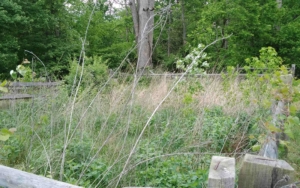
Photo credits Overgrown Woodland Edge Garden by Paul Van Rjin, Friends of Mason Neck State Park
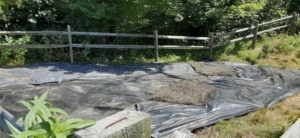
Photo credits Smothering Woodland Edge Garden by Paul Van Rjin, Friends of Mason Neck State Park
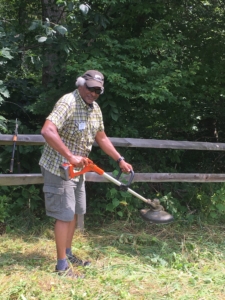
Photo by Sarah Mayhew, FMN Gerald Rob Warren with weed whacker Mason Neck Chapter Project
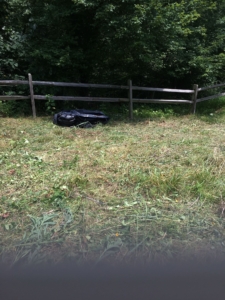
Photo by Sarah Mayhew, FMN Chapter Project mowed Woodland Edge Garden
As you can see, there was a lot growing and then we cut it all down to ground level. The next workday our volunteers laid down the black plastic, creatively repurposing the chicken wire we removed from the fence to help weigh down the plastic!


